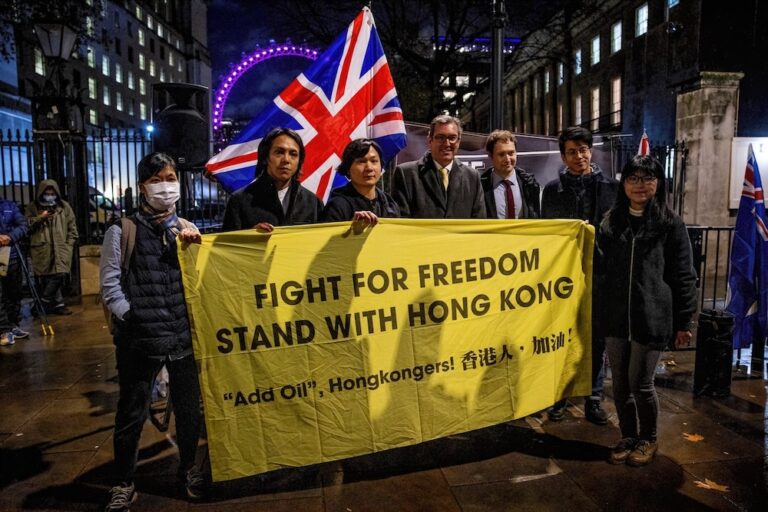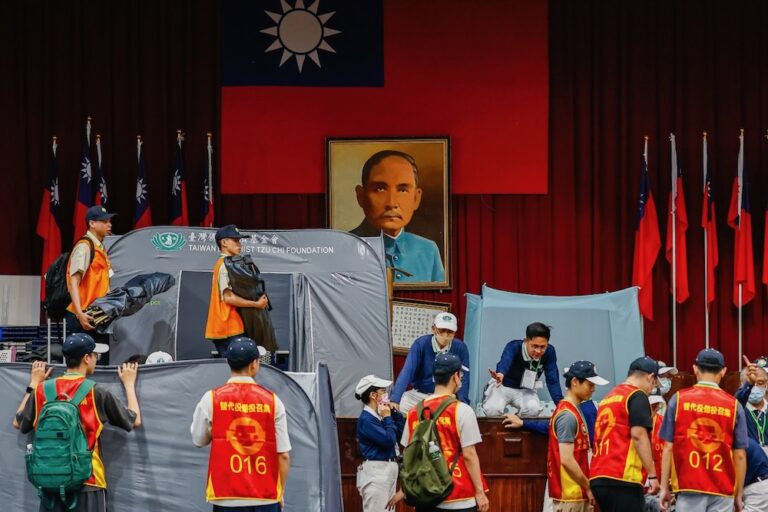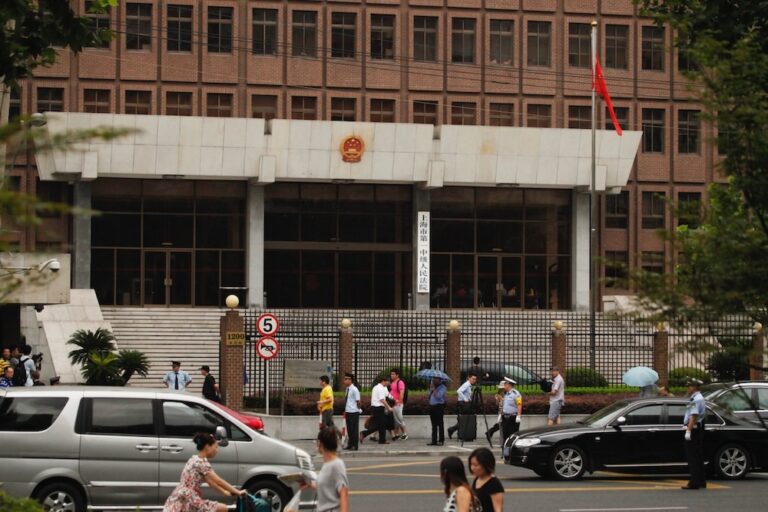In the claim, the politician successfully applied for the provisional seizure of a third of journalist Lin Chau-yi's monthly salary as collateral against possible future damages.
(IFJ/IFEX) – 26 October 2011 – The International Federation of Journalists joins its affiliate, the Association of Taiwan Journalists (ATJ), in expressing concern over the continued use of criminal defamation laws to curb press freedom in Taiwan.
ATJ chairperson, Lin Chau-yi, a reporter for independent news website Newtalk, and Su Jeng-ping, the website’s administrator, were sued for criminal defamation by Chinese Nationalist Party (KMT) legislator Hsieh Guo-liang. The legal action was taken in response to an article published by Newtalk on September 2.
The article reported meetings between Hsieh and members of Taiwan’s National Communications Commission prior to their public hearing of an application regarding one of Taiwan’s largest-ever multi-media acquisitions.
Want Want China Broadband, a subsidiary of the Want Want Group, already owns several newspapers, magazines and terrestrial and satellite television stations in Taiwan. The proposed acquisition would see the company purchase an additional 11 cable television companies for TWD 76 billion (approx. US$ 2.6 billion), allowing the company to secure 23 per cent of Taiwan’s market of cable subscribers. The purchase would enable the company to control one-third of Taiwan’s media market.
The article queried the purpose of the meetings but also included the denial by Hsieh that the meeting involved any inappropriate pressure being placed on the Commission.
In his claim against Lin, Hsieh successfully applied for provisional seizure of a third of Lin’s monthly salary as collateral against possible future damages.
Although Hsieh subsequently retracted his provisional seizure claim in response to negative media coverage, the IFJ is concerned that laws allowing seizure of defendants’ assets prior to hearings threatens the livelihoods of journalists.
“Accountability is the foundation of a democratic society. It is the responsibility of the media to report on cases of public interest and hold public officials accountable for their actions,” said the IFJ Asia-Pacific.
“Criminal defamation laws curtail press freedom by allowing public figures to threaten journalists with criminal action and provisional seizure of their assets. Such laws are inconsistent with accountability and transparency.”
The IFJ urges the Taiwan government to repeal current defamation laws and institute defamation as a civil offence, with relevant safeguards for press freedom and journalists’ ability to report on matters of public interest.
The case will be heard on October 27.


